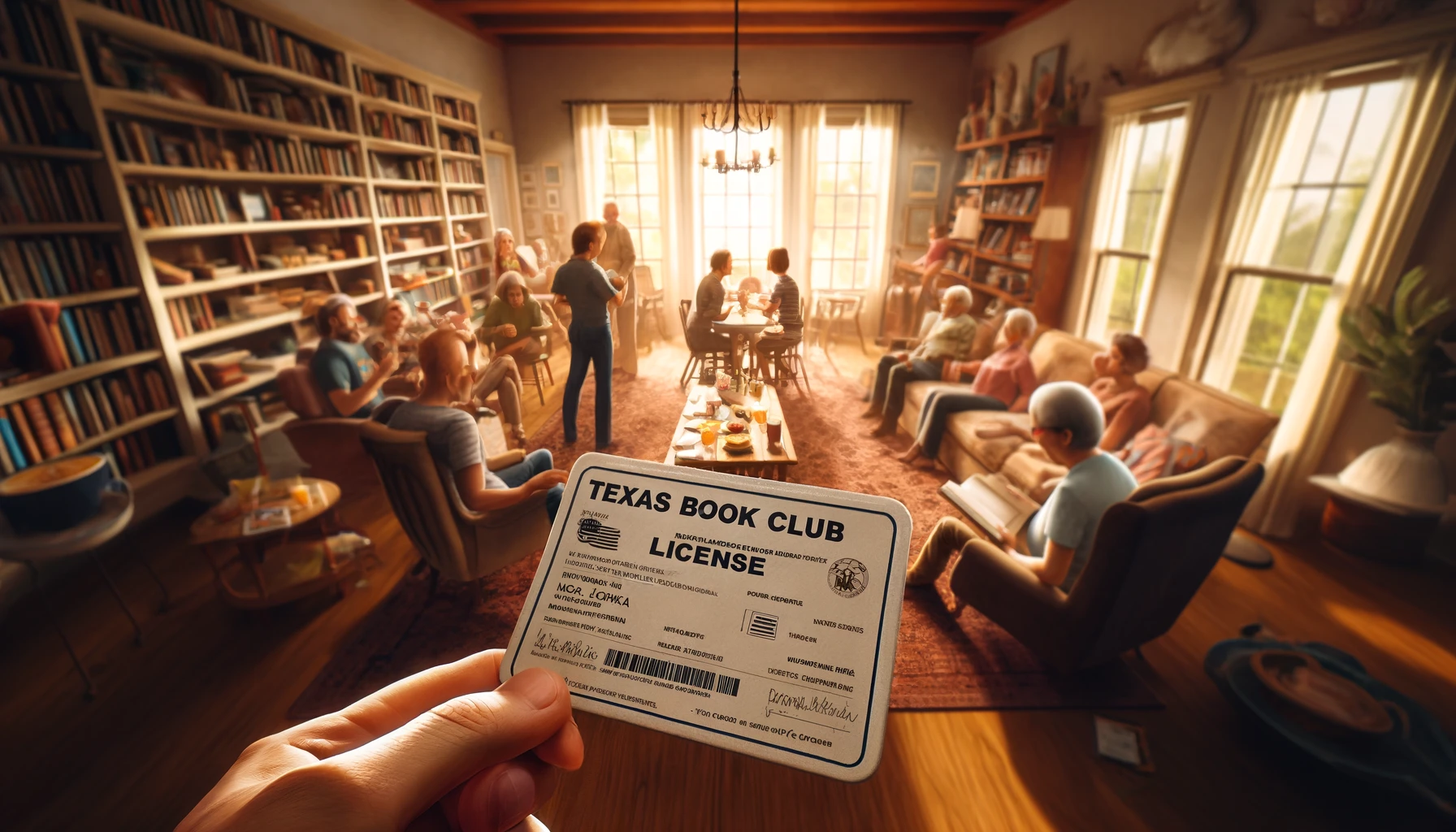Texas Takes on Literature: State Mandates Official Licenses for Book Club Enthusiasts
In a move that’s set off a firestorm among book lovers, the state of Texas is poised to impose a shocking new regulation on literary gatherings. Lawmakers have introduced a bill requiring all book clubs to obtain official state-issued licenses to operate legally. The Lone Star State is turning into the Book Police State.
The proposed legislation comes with a hefty dose of bureaucratic absurdity. To secure a license, book clubs would have to submit detailed membership rosters, reading lists, and documented minutes of their discussions for state approval. Licensing fees have been floated, the revenue earmarked for a dubious-sounding “Committee for the Preservation of Wholesome Literature.”
Supporters of the bill claim it’s a necessary measure to combat the spread of “dangerous ideas” and protect impressionable Texans from subversive texts. “We must prevent book clubs from becoming breeding grounds for radical ideologies,” thunders Senator Sterling Starchback, chief proponent of the bill. “Uncensored discussions of certain topics could undermine our state’s values.”
Predictably, the bill has ignited fierce opposition. Librarians, educators, booksellers, and free speech advocates across the country are decrying it as blatant censorship and a logistical nightmare. “What’s next?” asks an exasperated bookstore owner, Beatrice Bookswell. “Will the state start issuing permits for private bookshelves? This is an assault on intellectual freedom and common sense.”
The practical implications are mind-boggling. Would informal neighborhood gatherings of friends discussing the latest bestseller require permits? Could casual book-themed wine nights be raided by the literary police? And who, exactly, would sit on the Committee to determine which books are acceptably “wholesome”?
Naturally, the bill has become prime fodder for late-night comedians and sparked a surge in satirical memes. “Forming a book club to discuss this licensing regulation is probably illegal now,” quips one Twitter commentator, while another suggests “the only way to get a license in Texas would be to read exclusively Westerns and the Bible.”
Whether the “Official Book Club License” fiasco becomes a reality or dies a much-deserved death in a pile of bureaucratic red tape remains to be seen. But the mere proposal is a chilling reminder of the ongoing threats to intellectual freedom and the absurdity of those who seek to control, rather than celebrate, the power of the written word.

